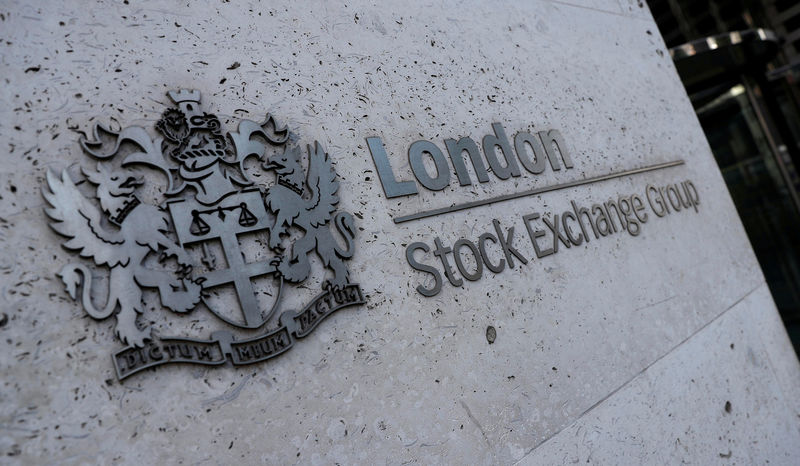By Sujata Rao
LONDON (Reuters) - A four-day rally that had lifted world stocks to near-record highs stalled on Thursday after China said it would retaliate for U.S. legislation backing Hong Kong's protesters, leaving investors concerned as to the extent of the Chinese response.
Fading hopes of a rapprochement between the world's two biggest economies before additional, potentially damaging tariff hikes kick in has lowered risk appetite, pushing the benchmark German 10-year government yield to its lowest since Nov. 1 (DE10YT=RR).
The yen - perceived as a safe-haven currency - ticked up from six-month lows against the U.S. dollar
A pan-European stocks index retreated from four-year peaks hit earlier in the week, ending 0.1% lower (STOXX), led by the trade-sensitive auto sector, down 0.8% (SXAP) for its worst day in more than a week.
The U.S. legislation, which threatens sanctions for human rights violations and seeks to safeguard Hong Kong's autonomy, prompted China to warn of "firm counter measures".
But fears as to the extent of Chinese retaliation eased during London trading.
"The market is reacting in a cautiously positive way to the fact that we don't have any details of (China's) retaliation," said Ken Odeluga, market analyst at City Index in London.
"I think we'll know more in the coming days and the market is keeping its powder dry for that."
Meanwhile, China's state council said that it would step up punishment for intellectual property violations - a key sticking point in the U.S.-China conflict - and that it would lower non-tariff trade barriers.
Wall Street's main indexes closed at record levels for a third straight day on Wednesday, albeit in thin liquidity before the Thanksgiving holiday, after data showed U.S. economic growth had picked up in the third quarter and consumer spending had increased.
Elsewhere, though, the outlook for growth looks less rosy. Japanese retail figures slumped the most since 2015 as a sales tax hike dragged on the economy, exacerbating a slowdown caused by slowing exports and manufacturing.
That took Asian shares excluding Japan down 0.2% (MIAPJ0000PUS). Japan's Nikkei (N225), Hong Kong's Hang Seng (HSI) and Shanghai blue chips <.CSI200> all closed weaker.
MSCI's world equity was index flat, after it approached the record reached in January 2018. However, the index is up almost 3% so far in November and is on track for the best month since June as investors flit in and out depending on trade war headlines (MIWD00000PUS).
"People don't want to be caught on the wrong side," said Geoff Yu, head of the UK investment office at UBS Wealth Management. "It does reflect there's cash on the sidelines. If you can stretch the positive narrative, if the trade issue is out of the way for the time being, we might actually see a demand pick up."
U.S. markets are closed for Thanksgiving, but equity futures for all three major indexes were down around 0.1%, having clawed back some earlier losses (ESc1)
EUROPE AND BRITAIN
Markets' mood improved also after data showed euro zone economic sentiment rebounded more than expected in November. Sentiment in industry, among consumers, and in industry all improved but remain below zero. The euro was little changed by the news.
Data released on Thursday also showed that bank lending to euro zone companies rebounded in October.
The British pound
The pound eased 0.1% to $1.2909 and against the euro it weakened 0.25%, retreating from a near seven-month high at 85 pence (EURGBP=D3).
Implementing Brexit by the end of January, as Johnson promises, would leave him a "miniscule" 11 months to agree a trade deal with the European Union, analysts at Societe Generale (PA:SOGN) told clients.

The Institute for Fiscal Studies - a British think tank - said that neither of the UK's major parties have credible plans to manage Britain's public finances.